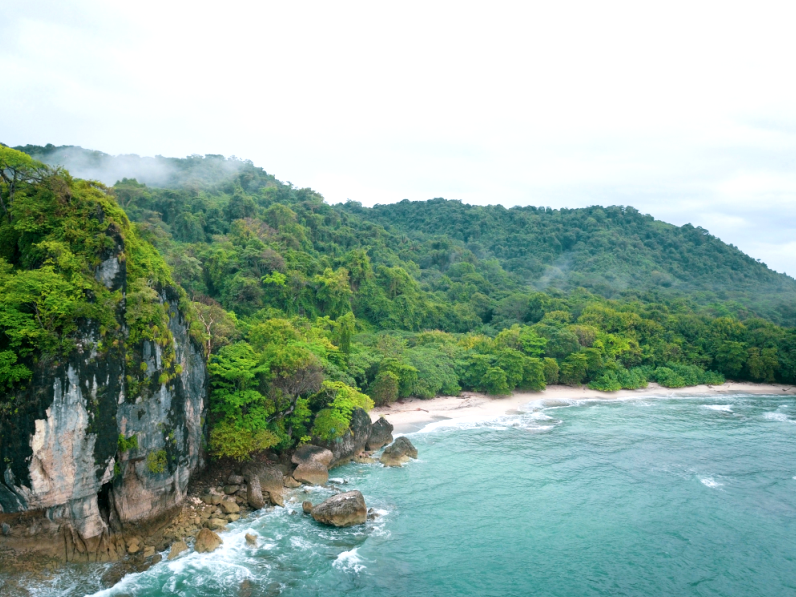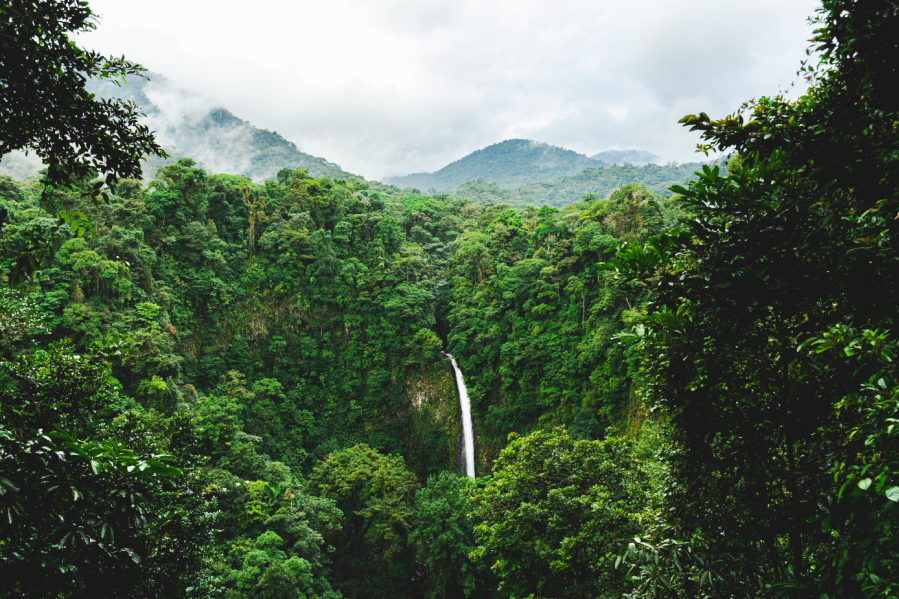
Photo by Samuel Charron on Unsplash
Climate change is no longer a speck in the distance — it is on our doorstep and is directly impacting our day-to-day lives. With the pressures of global warming and carbon emissions mounting, it is up to countries as a whole to do their bit.
Of course, the uptake on this is slow and even non-existent in some places. But one country that has embraced environmentalism wholly is Costa Rica.
Read on to discover why the country is a true 21st-century environmental leader.
A pioneering approach to eco-friendly tourism
Tourism is, by its very nature, damaging to the environment.
Between flights, buses, constant foot traffic eroding the land and increasing pollution, it does more harm than good to our planet. And with so many countries relying on tourism for their economy, it doesn’t look like it’s going away anytime soon.
But Costa Rica has turned this on its head. The country places great emphasis on ecotourism, an industry that puts the environment at its center.
Guided hikes through nature, snorkeling, white water rafting — all these activities are on offer, but with dedicated green commitments to ensure each has as little carbon footprint as possible.
Alongside these traditional tourist activities are green schemes that let tourists actively contribute to the country’s environmental commitments.
For instance, travelers can visit small farms and plantations to help rural farmers at a grassroots level. Alternatively, you can get involved in dedicated tree-planting schemes to aid the country’s reforestation efforts.
A strong emphasis on animal conservation
In terms of biodiversity, Costa Rica is one of the world’s leaders. As reported by Earth Times, more than 5% of the entire planet’s species call the country home — that’s a staggering 500,000 different varieties of flora and fauna.
Amongst the animals that call Costa Rica home are enigmatic ocelots, intriguing three-toed sloths, the vibrant red-eyed tree frog, and the aptly-named Jesus Christ lizard — it can literally walk on water!
Costa Rica takes great pains to ensure these animals stay safe and protected. It has implemented a variety of conservation efforts, including turtle hatching schemes, animal sanctuaries, hunting bans, and habitat preservation programs.
Environmentalism is as much about reducing our carbon footprint and preventing global warming as it is about protecting the planet’s native species. Costa Rica knows this and embraces it like no other country can.

Photo by Etienne Delorieux on Unsplash
A governmental policy that embraces environmentalism
It’s rare to find a country anywhere in the world with such genuine and visible commitments to environmental policy. Even with good intentions, progress is slow in even the most modern democracies.
Consequently, Costa Rica is a shining beacon when it comes to environmental policy, and serves as an example to others.
Take its energy, for instance. According to Anywhere's 2020 Costa Rica travel guide, over 99% of the country’s electricity is generated by renewable sources — that’s a staggering figure. These sources include a mix of hydroelectricity, wind, solar, geothermal, and biomass.
Beyond this, the government has imposed a 200-meter zoning law around its shores, preventing large hotels from being built on the waterfront. As well as providing a nice view, this also prevents waste and pollution from building up and seeping into Costa Rica’s azure seas. Clearly, Costa Rica is a shining example to the rest of the world of how to put the environment at the center of governmental policy.
A plethora of protected natural spaces
Habitats and natural spaces all around the world are disappearing at an alarming rate. One need only look at Australia to see this — incomprehensible amounts of the bush have been burnt to cinders as a direct result of climate change.
The protection and preservation of natural habitats is a huge concern in 2020, and Costa Rica has taken that cause to its heart.
An impressive 25% of the country is protected by law. Classified as a national park, wildlife reserve, or protected area, this prevents people from developing it, farming it, or using it for waste or pollution.
Costa Rica didn’t always embrace this policy. During the Sixties, it had one of the highest deforestation rates of anywhere in the world. This changed during the Seventies, when legislation was introduced to incentivize reforestation and sustainable use of existing forests.
Today, Costa Rica is a world leader in reforestation — long may it continue.
The onus is on all of us to do our bit to prevent climate change. World leaders would do well to look to Costa Rica as an example of how to embrace environmentalism in 2020. Costa Rica is truly a 21st-century environmental leader and serves as an inspiration to us all.
Written by Laura May
About the Author
Laura May is Digital Editor at Just Another Magazine. We write about beauty, fashion, lifestyle, relationships, travel, trends and anything else that matters to you. Name throwing you off? Don’t take it too seriously – we intend to stand out from the crowd.
You may also like
4 Ways to Be More Eco-Friendly on Your Next Adventure
Eco-Friendly Activities for Your Trip to Seattle
Best Camping Destinations in Queensland
5 Eco-Friendly Travel Destinations You Need To Visit In 2020
5 Essentials for a Sustainable Camping Trip
